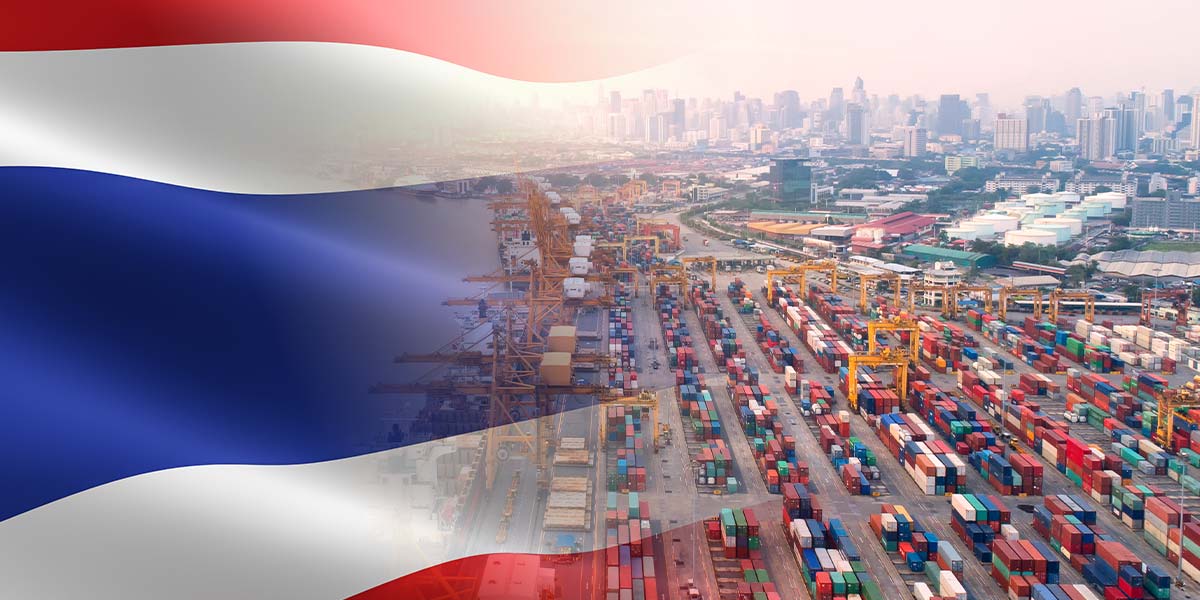On Thursday, Krungsri Securities (KSS) stated that the Ministry of Commerce reported the sixth consecutive month of growth for exports in December, with a rise of 8.7% compared to the same period a year prior. The growth exceeded the market’s expectations of a 7.4% increase. Overall, the average export figure in 2024 exhibited an expansion of 5.4%.
Coconut juice, rubber, chicken, seafood, and animal feed are the highlights of 2024’s exports, with coconut juice seeing the largest expansion. Coconut juice export to China topped a four-month record with a 75% growth compared to the same period last year, while the shipment to the United States escalated by 107%, the highest in 2024. Additionally, in South Korea, coconut juice saw a 48% growth from the same period a year ago, the biggest expansion in seven months.
Following this development, the analyst sees a positive sentiment toward Malee Group Public Company Limited (SET: MALEE) and Thai Coconut Public Company Limited (SET: COCOCO).
The Trade Policy and Strategy Office (TPSO) disclosed data regarding Thailand’s international trade in December 2024, with a total export value of $24,765 million, representing an expansion of 8.7%, compared to the market’s expectations of 7.4%, and the sixth consecutive month of growth.
Thailand’s imports in December grew by 14.9% to $24,776.5 million, which led to a $10.6 million trade deficit in the month.
In 2024, Thailand shipped around $300,529 million worth of products, exceeding expectations to an all-time high of 5.4% expansion, while imports surged to $306,809 million, netting a $6,280 million trade deficit.
Poonpong Naiyanapakorn, Director of TPSO, revealed that Thailand’s exports in December 2024 were bolstered by capital goods and all Thai materials, with expansions in most major export markets amid uncertainties regarding future global trade policy.
Total export value in 2024 reached its historic high with shipments in the U.S. dollars reaching $300 billion for the first time, while shipments in Thai baht also showed a figure higher than THB 10 trillion for the first time as well.
Agricultural products expanded for six consecutive months by 10.7% to $2,072.7 million. The best-sellers were rubber, tapioca products, fresh, chilled, frozen, and processed chicken and fruits. Meanwhile, for the entirety of 2024, agricultural shipments expanded by 7.5% to $28,827.3 million.
Agro-industrial products also expanded for six consecutive months by 6.7% to $1,721.3 million. The best-sellers were canned and processed fruits and fish, wheat products, pet foods, and other processed foods. For the entirety of 2024, agro-industrial shipments expanded by 4.1% to $23,357.7 million.
Industrial products expanded for nine consecutive months by 11.1% to $20,227.9 million. The best-sellers were gems and jewelry (excluding unwrought gold), computers, computer accessories, computer parts, machinery and their parts, air conditioners and their parts, rubber products, and chemical products. For the entirety of 2024, industrial shipments expanded by 5.9% to $237,461.1 million.
In December 2024, Thailand’s top ten export markets demonstrated significant growth across various regions. Leading the list was South Asia, with an impressive expansion of 44.5%. The United Kingdom followed, showing a 37.4% increase, while the Commonwealth of Independent States (CIS) recorded a growth of 37%.
Canada experienced a notable expansion of 22.9%, and the CLMV grew by 20.7%. Exports to the European Union rose by 19.1%, and the United States saw a 17.5% increase. China reported a growth of 15%, while Latin America expanded by 12.3%, and the Middle East rounded out the list with an 11.3% rise.
Poonpong forecasted export growth to continue its seven-month streak in January 2025, while the commerce ministry expected a 2-3% growth for overall exports in the full year 2025, with supporting factors from: global economic trends that could see a similar growth rate to the present, pressure from inflation and low interest rates, increasing industrial relocation to ASEAN nations including Thailand, and the promotion of soft power in relation to export products to further bolster global recognition.
However, there are also uncertainties from the U.S. trade policy, which would affect the global trading climate, prolonged geopolitical tension, and volatility of the exchange rate.
The ministry will continue to monitor these situations and prepare plans with cooperation from private entities and related parties to withstand changes in the market and maintain Thailand’s trading strength.
The TPSO director also remarked that Pichai Naripthaphan, Minister of Commerce, has prioritized dealing with trade policies from the U.S. President Donald Trump, as he ordered all departments to closely follow the situation. In February, the minister will travel to the U.S. to negotiate tariffs on Thai exports.
Moreover, the TPSO is also closely monitoring the situation and believes that Trump’s policies will have both positive and negative effects on Thailand and other ASEAN neighbors.





